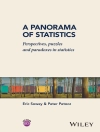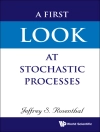High response rates have traditionally been considered as one of
the main indicators of survey quality. Obtaining high response
rates is sometimes difficult and expensive, but clearly plays a
beneficial role in terms of improving data quality. It is becoming
increasingly clear, however, that simply boosting response to
achieve a higher response rate will not in itself eradicate
nonresponse bias. In this book the authors argue that high response
rates should not be seen as a goal in themselves, but rather as
part of an overall survey quality strategy based on random
probability sampling and aimed at minimising nonresponse bias.
Key features of Improving Survey Response:
* A detailed coverage of nonresponse issues, including a unique
examination of cross-national survey nonresponse processes and
outcomes.
* A discussion of the potential causes of nonresponse and
practical strategies to combat it.
* A detailed examination of the impact of nonresponse and of
techniques for adjusting for it once it has occurred.
* Examples of best practices and experiments drawn from 25
European countries.
* Supplemented by the European Social Survey (ESS) websites,
containing materials for the measurement and analysis of
nonresponse based on detailed country-level response process
datasets.
The book is designed to help survey researchers and those
commissioning surveys by explaining how to prioritise the reduction
of nonresponse bias rather than focusing on increasing the overall
response rate. It shows substantive researchers how nonresponse can
impact on substantive outcomes.
Spis treści
1. Backgrounds of nonresponse
1.1. Introduction
1.2. Declining response rates
1.3. Total survey quality and nonresponse
1.4. Optimising comparability
2. Survey response in cross-national studies
2.1. Introduction
2.2. Harmonisation models
2.3. Contactability
2.4. Ability to cooperate
2.5. Willingness to cooperate
2.6. Nonresponse bias
2.7. Ethics and humans
3. The European Social Survey
3.1. Introduction
3.2. What is the European Social Survey?
3.3. ESS design and methodology
3.4. Nonresponse targets, strategies and documentation
3.5. Conclusions
4. Implementation of the European Social Survey
4.1. Introduction
4.2. Basic survey features
4.3. Practical fieldwork issues
4.4. Summary and conclusions
5. Response and nonresponse rates in the European Social
Survey
5.1. Data and definitions
5.2. Response and nonresponse rates in ESS 3
5.3. Response rate differences and fieldwork efforts
6. Response enhancement through extended interviewer efforts
6.1. Introduction
6.2. Previous research on contactability
6.3. Previous research on cooperation
6.4. Sample type and recruitment mode in the European Social
Survey
6.5. Establishing contact in the European Social Survey
6.6. Obtaining cooperation in the European Social Survey
6.7. Effects of enhanced field efforts in the European Social
Survey
6.8. Conclusion
7. Refusal conversion
7.1. Introduction
7.2. Previous research
7.3. Refusal conversion in the ESS
7.4. Refusal conversion and data quality
7.5. Discussion and conclusions
8. Designs for detecting nonresponse bias and adjustment
8.1. What is nonresponse bias?
8.2. Methods for assessing nonresponse bias
8.4. Final conclusions
9. Lessons learned
9.1. Introduction
9.2. Standardisation, tailoring and control
9.3. Achieving high response rates
9.4. Refusal conversion
9.5. Nonresponse bias
9.6. Contact forms and fieldwork monitoring
9.7. Into the future
O autorze
Ineke Stoop, Social and Cultural Planning Office of the Netherlands
Head of the Department of Data Services and IT, Dr Stoop has worked in survey research and data quality for almost 30 years. She’s a member of the advisory board for both Eurostat and the ISI. Her main research interest is nonresponse.
Jaak Billiet, Centre for Sociological Research, K.U. Leuven, Belgium
Professor Billiet is head of the Centre of Sociological Research and a member of the central co-ordination team of the European Social Survey.
Achim Koch, Centre for Survey Research and Methodology, Germany
Senior Researcher Achim Koch has been working in this area for 20 years. He was Director of the German General Social Survey between 1995 and 2004.
Rory Fitzgerald, Centre for Comparative Social Surveys, City University, UK
Senior Research Fellow Rory Fitzgerald has had many years experience working in surveying. Before moving to his current post he was Research Director at the National Centre for Social Research (Nat Cen) for 5 years.
All four authors have published numerous articles in this area.












